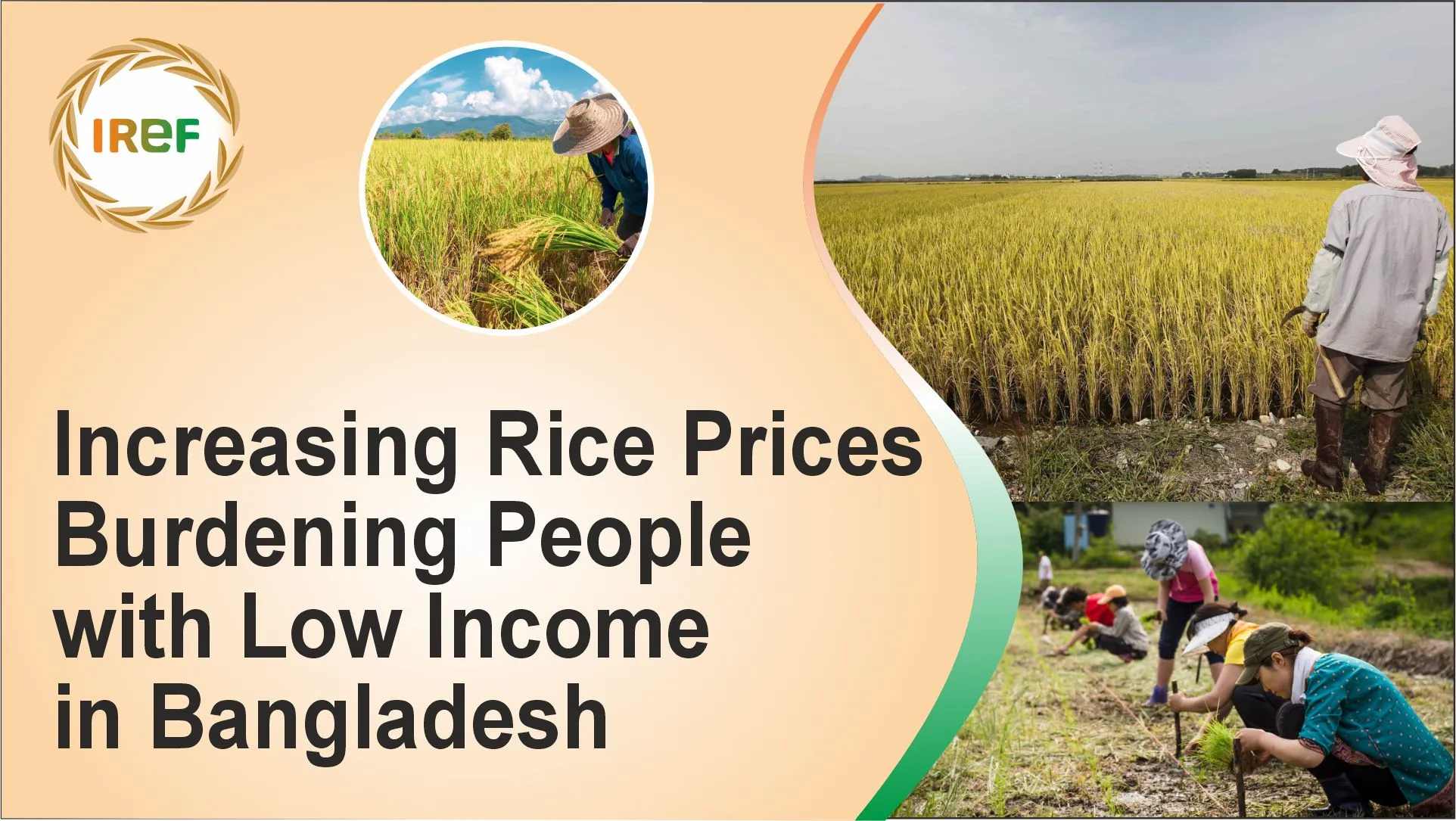Increasing Rice Prices Burdening People with Low Income in Bangladesh

Rice is an integrated part of daily Bangladeshi meals but its price is something that is creating burden on people with low income. Bangladesh has imported around 1.3 million tonnes of rice. Not only this, but the previous season yielded better production. Despite of all these, prices of rice keeps on rising and the ousted Awami League govt., has not able to bring prices down before being removed through the July mass uprising. As per data given by Trading Corporation of Bangladesh (TCB), the retail price of coarse rice has turned Tk 55 per kg, increased from last month. Moreover, Medium-grade rice at Tk 60–65 per kg and fine rice costs Tk 75–85 per kg. Notably, prices have rose even under the new administration.
No influence on Price rising despite seasonal production
Around 20 million tonnes of rice produced in the Boro season that led to the fall in prices of rice. Though, prices of rice slightly fall this year but not significantly. Coarse rice was being sold at Tk 50 per kg this year nevertheless in the peak season of this year.Prices began rising again in June since the boro season lasts till the month of May According to the Trading Corporation of Bangladesh, Coarse rice rose by Tk 5 per kg last month, medium-grade rice by Tk 3–7, and fine rice by Tk 3–5 per kg. Shockingly, it is burdening low income buyers who pay Tk 60–65 per kg. In addition, common varieties of rice, consumed by working middle class families such as Paijam rice which sells at Tk 60–62, and BR-28 variety costs Tk 60–65 in the wholesale market of Karwan Bazar and west Tejturi Bazar,
What does Import data of rice reveal?
According to the Food Ministry, nearly 1.3 million tonnes were imported in the 2024–25 fiscal year, out of which, 835,000 tonnes were imported by govt. while private companies imported in around 470,000 tonnes. Due to massive damage to aman rice production in month of last august, the govt. had to reduce the import duties and approved the import of 1 million tonnes of rice.If we take a look at present, the public food grain stocks are at approximately 1.8 million tonnes, including over 1.5 million tonnes of rice.
Decline in global prices
A decline has been observed in the prices of rice at global level. Thailand’s average global price has been dropped from US $586 per tonne in July–Sept 2023 to $419 in June 2025 while Vietnam’s rice has fallen from $543 to $377 over the same period. However, the prices stood at high in Bangladesh.
Interestingly, rice imports are restricted in Bangladesh and allowed under special government permits. Expiring of those permits and having duty exemptions have led to halted imports. As a result, traders increase the prices as there is no competition from foreign markets for them. The total tax and duty on rice imports now stands at 67.5 %, as per National Board of Revenue (NBR).Md. Ziaur Rahman, general secretary of the Benapole Import-Export Association said that Bangladeshi rice imports come from Burdwan, India, where the per-kg price is around Rs 34, equal to Tk 53–54 after taxes and transport.
Necessary action to take
As the dollar price has increased around 40 % since 2022 resulting in soaring the cost of importing rice due to which local producers are facing little competition. Moreover, domestic traders are protected as its consequence and large traders are stockpiling paddy and rice in bulk. There is an urgency of breaching this market control to restore the competition.
Economists alerted that inflation will remain high without controlling the prices of rice. Moreover, the banks of Bangladesh has been trying to combat inflation by restricting loan flows increasing rate of interests. Professor Selim Raihan of Dhaka University’s economics department has asserted that the country is not self-sufficient in rice production, underscoring that inflation in Bangladesh is largely supply-driven. Apart from this, a senior official from a relevant government agency suggested to remove duties and open the imports for three months to observe the market’s response.